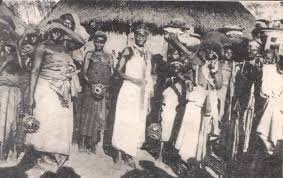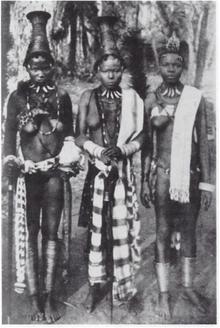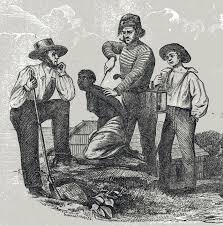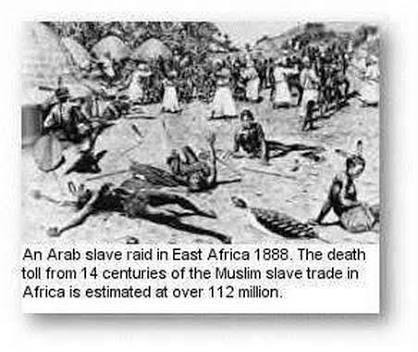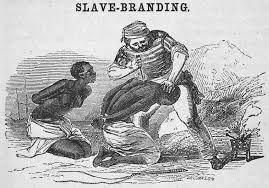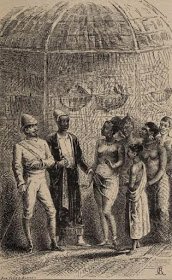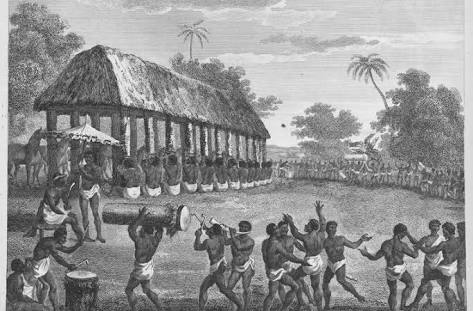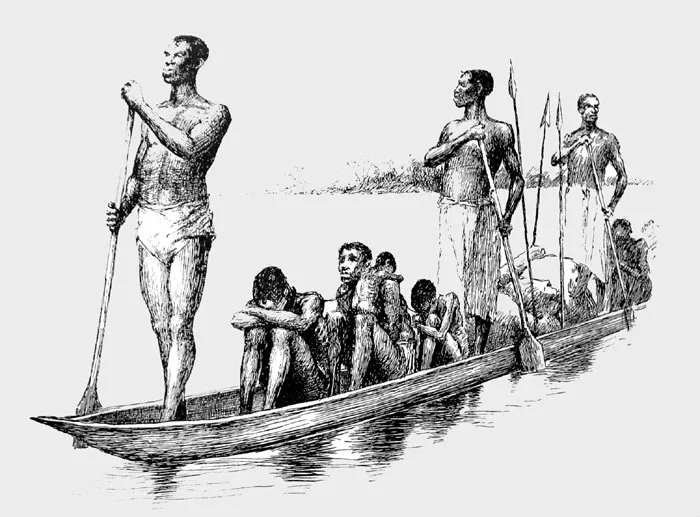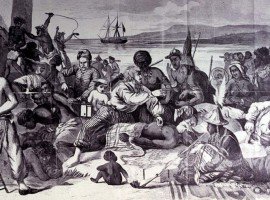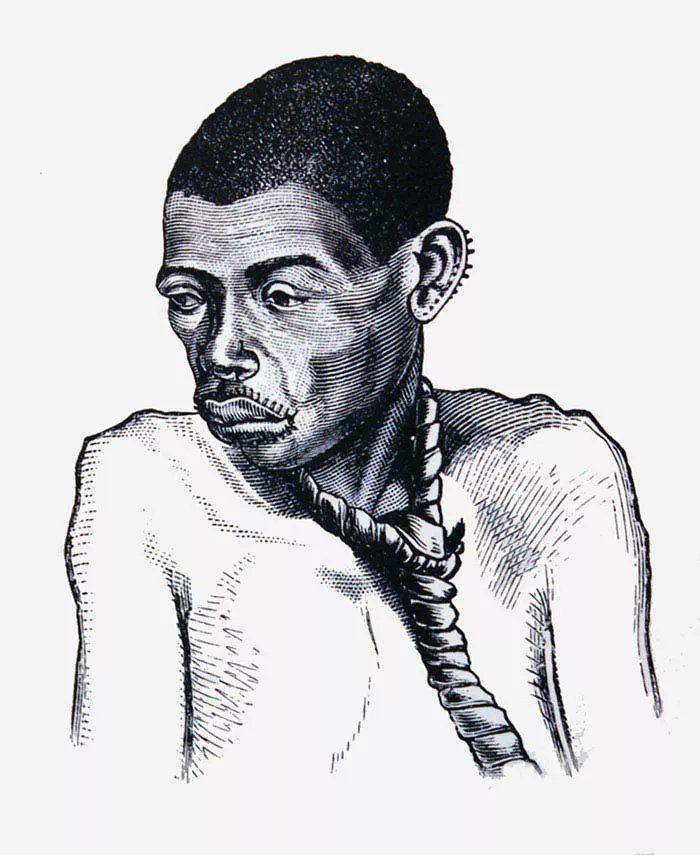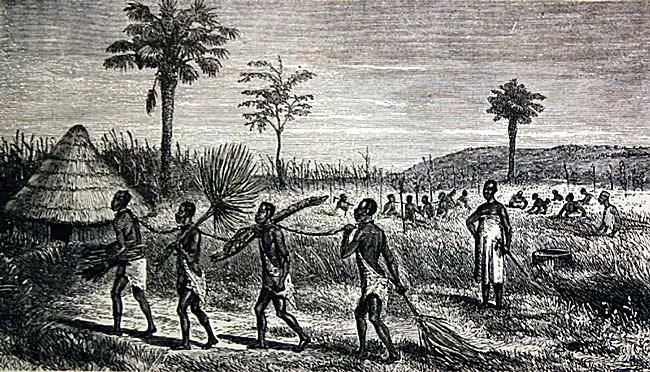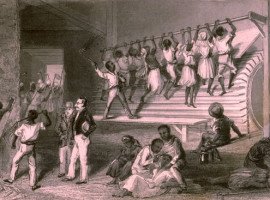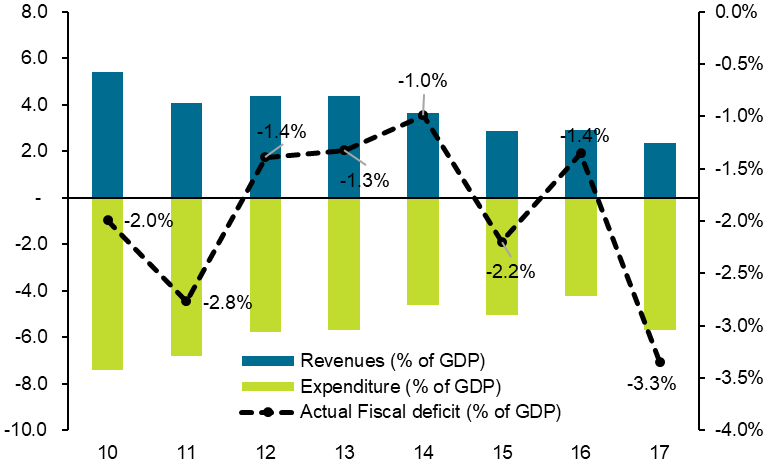During the heyday of the slave trade in the eighteenth century, the major igbo villages grew into cities of 10,000 to 20,000 inhabitants.
1. Creation, known as Okike;
2. Supernatural forces or deities called Alusi;
3. Mmuo, which are Dead Spirits;
4. and Uwa, the World.
On the other hand, if a wealthy man, or an elder, or an Ozo Chief die, he will not be buried until his people buys a Horse Or Cow.
But this does not mean that horses were not sold to towns.
Cows are also very important. They were mostly used for taking Ozo chieftaincy titles and for burial purposes.
These trees, now completely red, were cut into different sizes and brought to market.
Ufie was a very costly commodity.
Igbo people believe that, it not only made the body smooth but also acted as a blood tonic.
The woman would rub on this ufie and come out on Nkwo day(Market day), and people would give her gifts.
Hence,before a big wrestling match, young men would indulge in rubbing Ufie all over their body until the wrestling match was over.
Thus from all its uses, Ufie was a costly material in Igboland.
Infact, Slaves were obtained in various ways - by kidnapping, through wars, through Punishment for Crimes and breach of Taboos, To Settle Debts etc.
Also,Parents even sells their children for food.
when these Children arrive in this market, they will be asked to look after few goods,Then Slave dealers would pretend that they were pricing those goods,.
a price would be fixed with exchange of some items of European goods.
But those who committed crimes, Or breaches of taboos,were carried off by the agbridu people (law enforcement officers) and sold at Ifite Nibo market, near Awka.
The Portuguese were also said to have been the first European power to import cowrie shells, which were the currency of the far interior part of Delta (Igbo Tribe)
However, Two factors check-mated the spread of Portuguese influence and the continued expansion of Benin.
Second, Benin placed an embargo on the export of slaves,thereby isolating itself from the growth of what was to become the major export from Nigerian coast for 300 years
Although,Benin remained unique among for refusing to participate in the transatlantic trade.
Reason why, In the long run, Benin became relatively isolated from the major changes along the Nigerian Coast.
The Dutch took over Portuguese trading station's on the Coast that were the source of Slaves for Americas.
And By the 18th Century, more slaves came from the Nigerian Coast than from Angola and all Africa Countries combined,..
Over the period of the whole trade,more than 3.5 million slaves were shipped from Nigeria to the Americas.
Most of these slaves were Igbos, Significant number of Yorubas, Ibibio,and other ethnic groups.
The Igbo were dispersed to Colonies such as Jamaica,Cuba, Haiti, Barbados, the Colonies in future United States, Belize, Trinidad and Tobago among others.
In the United States the Igbo were commonly found in the states of Maryland and Virginia.
Adults were the most common ones taken, amounting to roughly 85% of the total slave trade from this region, children only made up about 15%.
The Frontier Culture Museum of Virginia estimates around 38% of captives taken to Virginia were from the Bight of Biafra.
A group of 75 Igbo slaves were bought by agents of John Couper and Thomas Spalding for forced labor on their plantations in St. Simons Island for $100 each.
American Musician Beyoncé's even had to shot her Music Lemonade Video in Honor of the Bravery of those 75 Igbo Landing Slaves.
CONCLUSION :
Statistics has it that Over 60% of the Black Americans, has their root from Igbo.
The likes of Bishop T.D Jakes, Quincy Jones etc, has all traced their Lineage to the Igbos.
The Yorubas as well as some other tribes too Suffered same fate.
We will Consider the Impact of the Transatlantic Slave Trade Among the Yoruba People Next.
Sources : NGU Library Collection, Wikipedia, History Ville, Elizabeth Isichei,
#Nzekwe Gerald Uchenna (NGU)
#MovementForTheEmancipationOfNigerianYouths(MENY)
